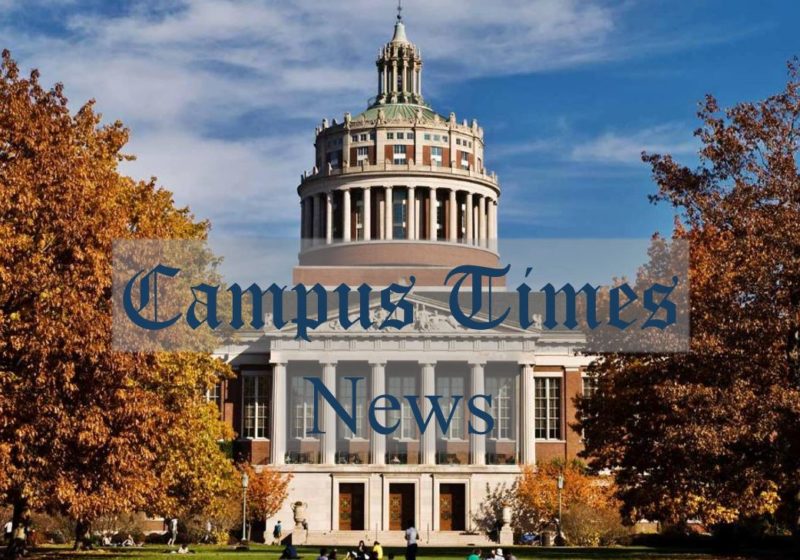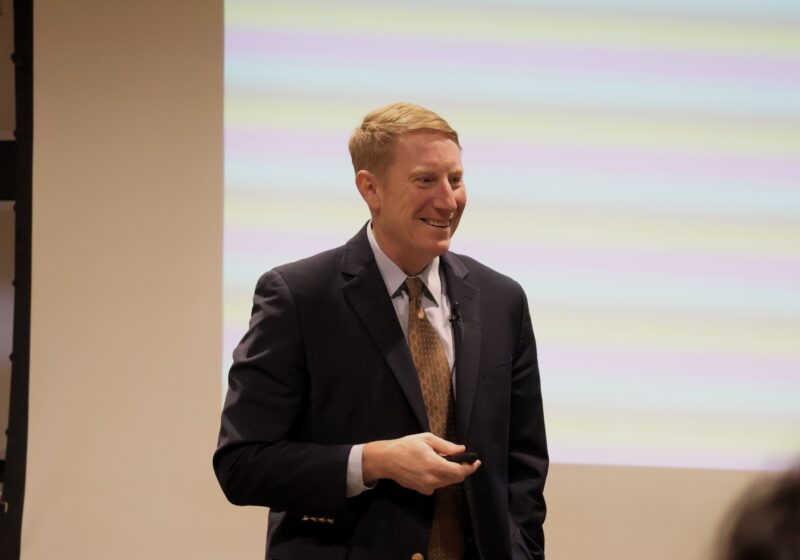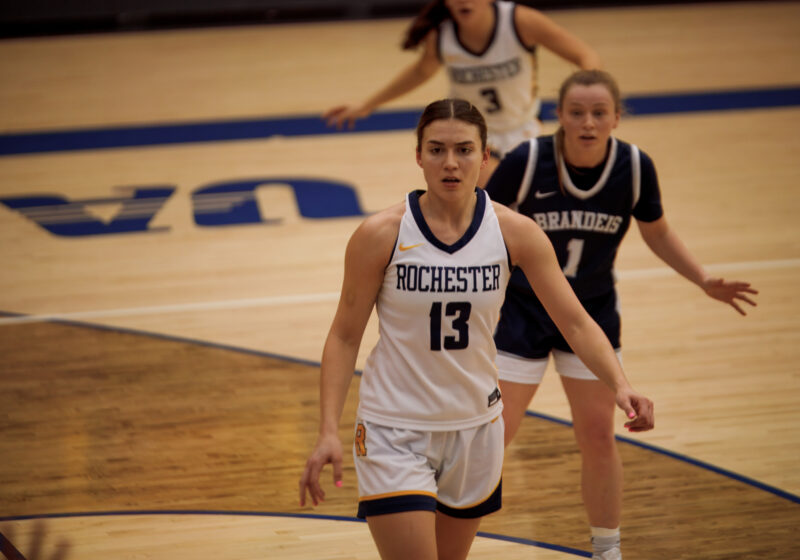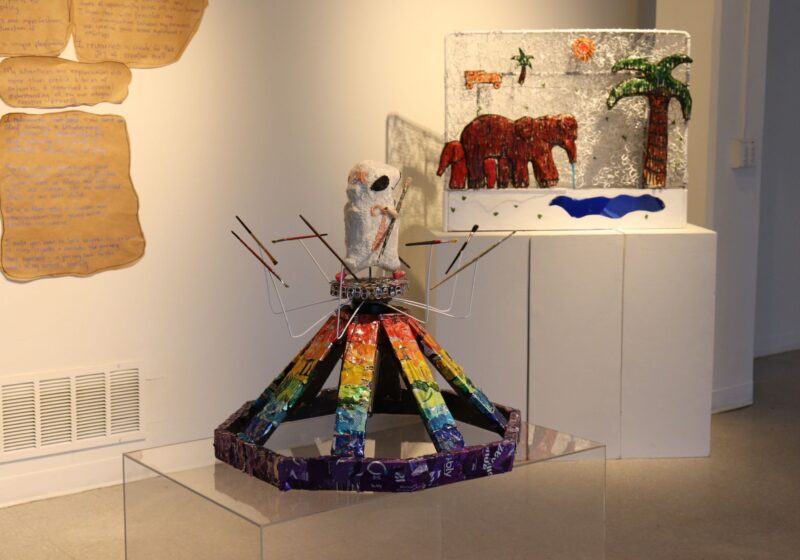“Pride started as a revolution,” said senior Miles Perry as they sat in front of a crowd on Saturday afternoon.
“It was not pretty, it was not friendly, it was none of that,” they added.
“50 Years Since Stonewall,” a panel held in Sloane Auditorium in Goergen Hall, was meant to shed light on the history of the LGBTQ+ rights movement, as well as where UR and the world have and haven’t improved. It commemorated 50 years since the Stonewall Riots, riots for LGBTQ+ rights sparked by a violent police raid on a gay bar.
Panelists also discussed UR’s past relationship with the LGBTQ+ community. Dr. Karen Hagberg, who got her Ph.D. from Eastman in 1976, reflected on the founding of the UR chapter of the Gay Liberation Front one year after Stonewall. Hagberg said she was “amazed and impressed” that UR permitted the creation of the Gay Liberation Front, and that soon after they allowed the group to host a dance.
However, UR has not always been inclusive to members of the LGBTQ+ community. Not long after the its founding, the Gay Liberation Front was removed from campus once administration found out most of their members were from other schools, as students would go to meetings on other campuses to remain closeted on their own.
Follins recalled her student experience with the lack of intersectionality in LGBTQ+ organizations at UR.
“If those organizations had existed,” she said. “I would have thrived here. Instead, I only survived here.”
While there was a Pride Network when she was a student, Follins said, it still did not feel like a space meant for her. She described it as “a room with maybe three or four almost anorexic white gay men.”
Perry spoke on the lack of space for intersectional identities on campus. When they arrived at UR, Pride Network was still a small organization, and they described Queer Students of Color — a discussion group for LGBTQ+ students of color within the Pride Network — as “sort of defunct” due to a lack of active members.
“When I saw it, I was like, ‘I don’t want this to be the campus that I have to live in for all four years, and more importantly, I don’t want this to be the campus that people are coming into,’” Perry said.
The Stonewall Riots are generally considered to be the birthplace of the LGBTQ+ rights movement, though Saturday’s panelists made clear there is more to that history than one incident.
Dr. Lourdes Follins, ‘91, drew attention to the Compton Cafeteria Riot, which occurred in 1966, three years before the Stonewall Riots. According to “The Guardian,” it was in response to police officers singling out and arresting transgender women for crimes like “female impersonation” and “obstructing the sidewalk.”
UR professor KaeLyn Rich, who studies U.S. LGBTQ+ History and Culture, bemoaned the lack of comprehensive education about the LGBTQ+ rights movement, saying, “[Students] learn, ‘oh, Stonewall was the start of the gay rights movement.’ And then they skip forward to marriage equality, and then they’ve completed their education.”
Towards the end of the panel, senior Lumi Schildkraut, who is affiliated with the Campus Times, asked what they imagined the panel would be talking about in 50 years.
“I would love to say that this won’t be a panel,” Perry said to laughter. “Instead, it’ll just be a little mimosa brunch, because there won’t be much to talk about other than just to celebrate.”
Rich said that in 50 years, they would be having “different versions of the same conversation.”
Hagberg highlighted issues currently affecting the LGBTQ+ community, like the upcoming Oct. 8 Supreme Court ruling deciding whether it is legal to fire a person based on sexuality or gender identity, and the disproportionately large number of transgender women of color murdered every year in the US.
Many of the attendees were not members of the LGBTQ+ community, but came to educate themselves. Chelsea Height, whose husband is an UR alumnus, said that she was inspired to attend the panel by her best friend, who is lesbian.
During the panel, Follins noted the changes that have taken place since her days at UR, and urged everyone at UR to “keep making this happen.”
“The fact that there are conversations about intersectionality,” she said, “[…] I’m not going to say it’s revolutionary, because there’s no blood being shed, but it’s powerful.”
Correction (10/8/19): An earlier version of this article misspelled Hagberg’s name as “Hegberg.” The error has been corrected.




